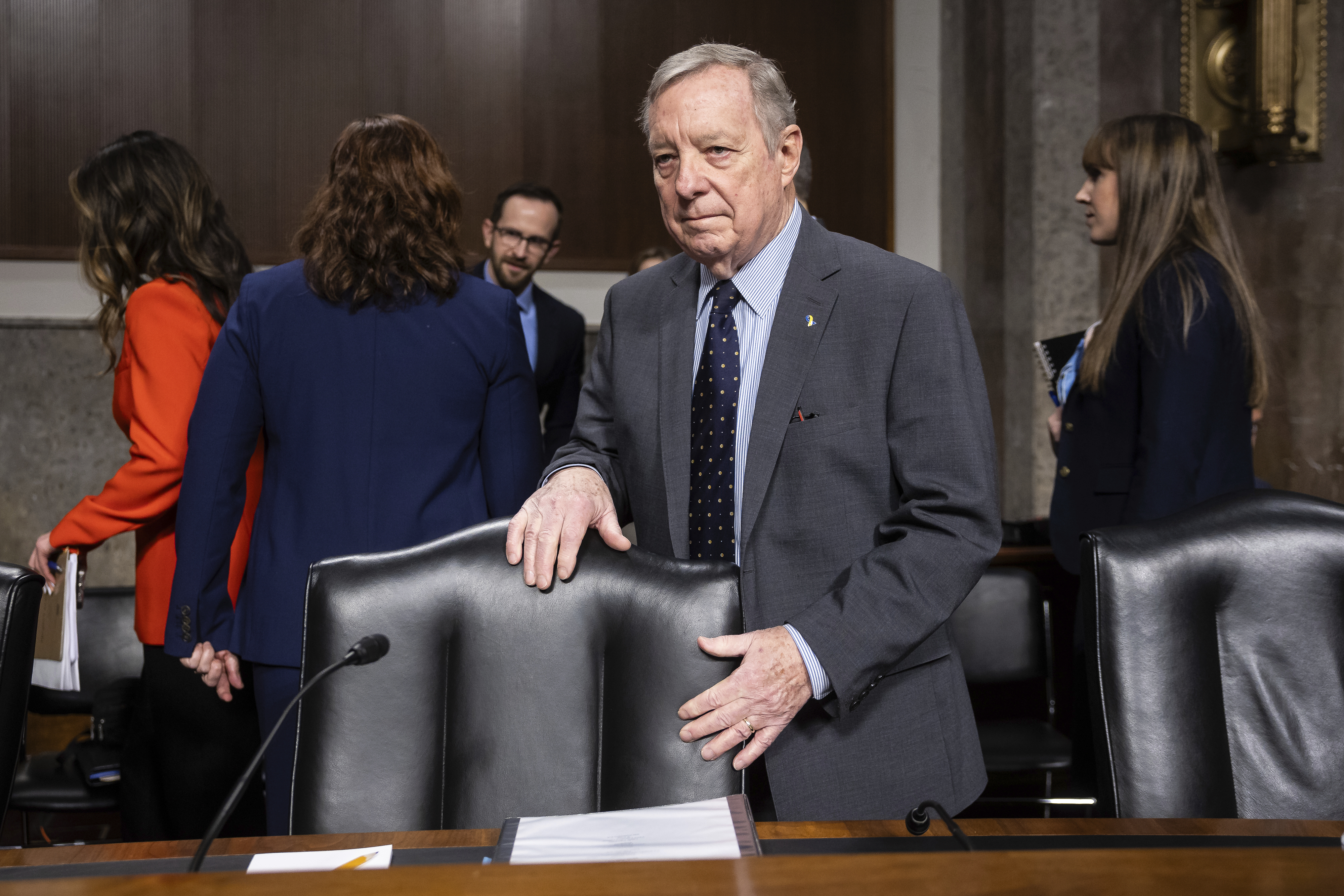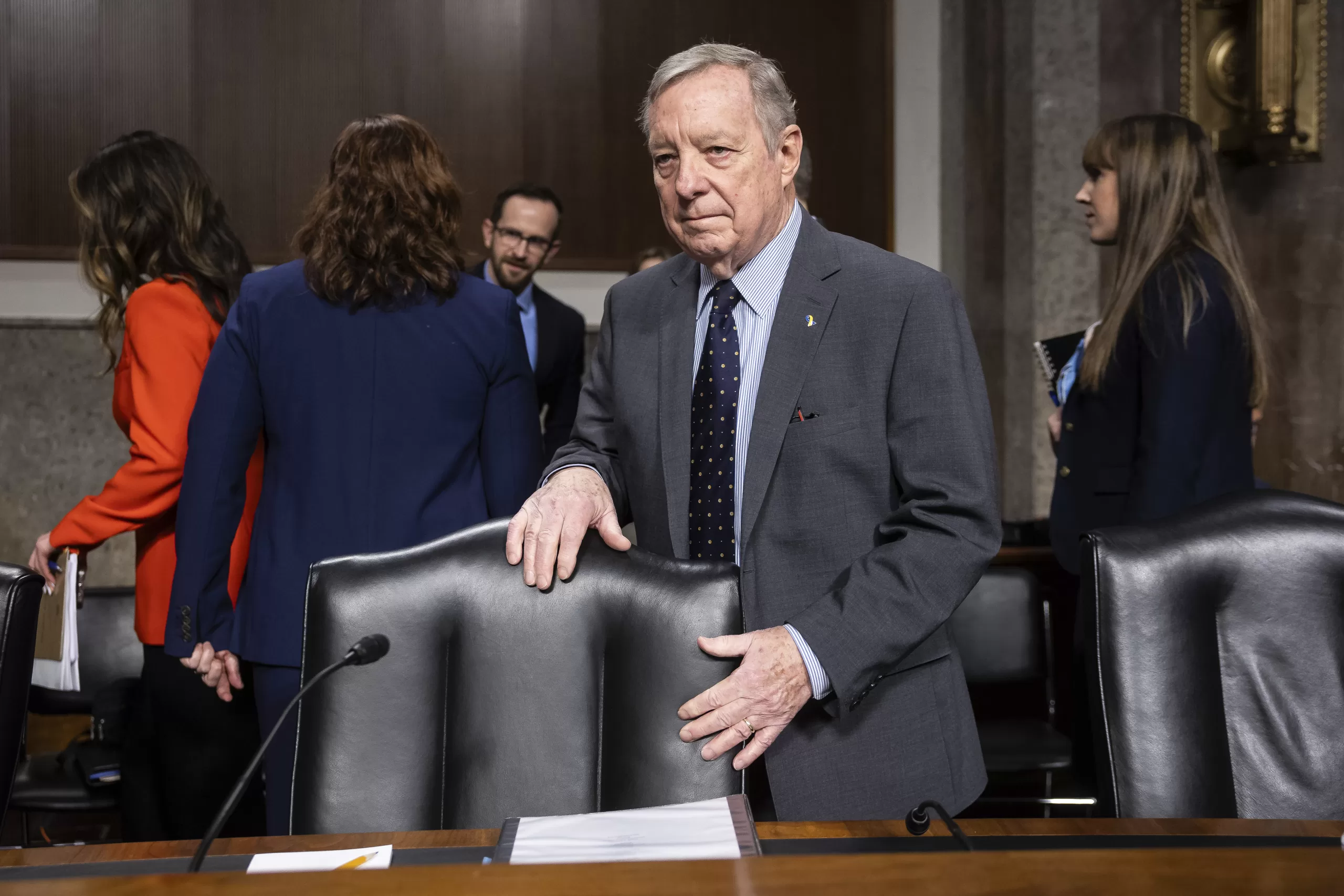
And election years only get harder. Typically reliable judicial votes like Sens. Jon Tester (D-Mont.) and Sherrod Brown (D-Ohio) will be unwilling to make any risky moves, as the two defend their Trump-friendly turf. Plus, any cooperation from Republicans is likely to fade, if not disappear altogether, especially if they feel confident Trump will win the election.
“We need a full court press,” said Sen. Richard Blumenthal (D-Conn.), a member of the Judiciary Committee. “We may need to stay weekends. But we need to get the job done and fill those vacancies and I’m determined to support any measures necessary to do it.”
Here’s what to look for as the latest chapter of the judicial confirmation wars heat up ahead of a hotly-contested presidential election cycle.
Can Democrats keep up with the Trump pace?
Republicans locked in 234 conservative-leaning jurists for lifetime appointments under Trump’s presidency, including three to the Supreme Court. Democrats would need about 60 more confirmed judges to catch up.
That’s doable, but pretty tough in an election year. And Democrats know it. When asked if they could catch Trump’s total, Senate Judiciary Chair Dick Durbin (D-Ill.) bluntly replied: “I don’t know.”
The White House sees especially strong opportunities for nominations in states like California, New York, Pennsylvania and Arizona, where there are two Democratic-aligned senators. That makes it easier to obtain so-called blue slips — something that says the senators from that state approve the judicial nominations — a longstanding tradition for picking judges that Biden is loath to break.
“When you look at our track record on red states, you see a world in which we could hit 235,” said a senior White House official, granted anonymity to speak candidly.
There are currently 57 federal judicial vacancies throughout the country,
according to data maintained by the Administrative Office of the U.S. Courts. Only 19 of those vacancies have pending nominees. And Biden started off with a big disadvantage: Just 1.1 percent of circuit court positions and 6.4 percent of district court spots were vacant in January 2021, compared to 9.5 percent on circuit courts and 12.8 percent on district courts when Trump took office in January 2017,
according to the Congressional Research Service.
Not to mention, judges require the Senate’s most precious resource: floor time. Majority Leader Chuck Schumer has faced a litany of pressures on that front, given seemingly never-ending spending fights. It’ll only grow more scarce this year, with longer breaks for senators to go back and campaign in their districts.
And if Democrats lose Senate control in November — a distinct possibility — it means they might not be able to significantly refill judicial ranks for quite a while. They could do some confirmations in the lame duck months; in 2020, the Republican Senate confirmed 13 judges even after Trump lost the election.
Republicans acknowledge Democrats could come close to Trump’s record, with Sen. Josh Hawley (R-Mo.) describing Durbin’s method as “a conveyor belt.”
“He’s been single minded about it. And I imagine that won’t change, he’ll still try to keep doing that right up till the time of the election,” Hawley said.
Will Republicans keep playing nice?
Trump broke from the typical blue slip process, nominating judges to circuit court posts even if home-state senators didn’t approve.
Progressives and the
Congressional Black Caucus pleaded with Biden to go even further — pushing him to abandon blue slip requirements on district court nominations — which would allow them to get more liberal judges in red states.
The former Judiciary Committee senator didn’t bite. That means some of his ability to fill judge slots is at the mercy of Republicans, who can easily block a nominee in their state by not returning a blue slip.
Still, Biden has had success with getting red-state senators to sign off. The Senate has advanced and confirmed judicial nominees from Indiana, Texas, South Carolina, Idaho, Oklahoma and Louisiana in recent weeks. Other senators from places like Wyoming, Utah, Nebraska and Florida have also signed off on picks, allowing the Judiciary Committee to hold hearings on their selections.
Asked if the blue slip tradition was working, Durbin said simply: “Yes.” And Sen. Peter Welch (D-Vt.) credited Judiciary ranking member Sen. Lindsey Graham (R-S.C.) as being “pretty constructive” in trying to build bipartisan support for red-state nominees.
To be sure, the pace of red-state nominations is still much too slow for many Democrats, who blame Republicans for refusing to engage in good faith.
“We are in active discussions with a number of Republican senators who have vacancies in their states,” the White House official said. “There are some senators who are holdouts, but thankfully, those senators are an overall minority.”
Sen. Thom Tillis (R-N.C.), a member of the Judiciary Committee, said his state is trying to reach consensus on several nominations. Other Republicans like Missouri Sen. Eric Schmitt, whose state has a number of vacancies, indicated they’re not looking to play ball.
“We’re still probably in the early innings,” Schmitt told POLITICO. “We’ll see. We’ll see.”
Do the judicial wars resonate during election season?
Democrats have seen electoral success in their focus on reproductive rights, but it’s unclear that will extend to the selection of judicial nominees who support those rights — particularly when it doesn’t involve the Supreme Court.
But the party is going to try, as its chances of keeping the Senate next year look difficult, at best. Welch acknowledged that typical voters aren’t likely to be tracking district and appellate judge vacancies in their state, but said Democrats can turn it into an “animating issue.”
“They get that the courts wield enormous power and that the damage from Dobbs is something Democrats care deeply about,” he said.
Meanwhile, Republicans have had more success in messaging the importance of judicial confirmations to their electorate. Conservatives see the Trump overhaul of the federal judiciary as one of the biggest wins of his first term.
“One of the big issues on the ballot is [that] trying to have a more conservative judiciary comes with having a Republican,” Graham said. “If you want to make sure you get conservative judges, win elections.”
And some Republicans have already signaled they’re looking to hold out until after the election, hoping their party pulls off the double Senate-White House win. Sen. John Kennedy (R-La.), a member of the Judiciary Committee, mocked some of the picks Biden has tried to make in his state.
“They send us some judges that aren’t qualified to judge a pie contest,” he said.
